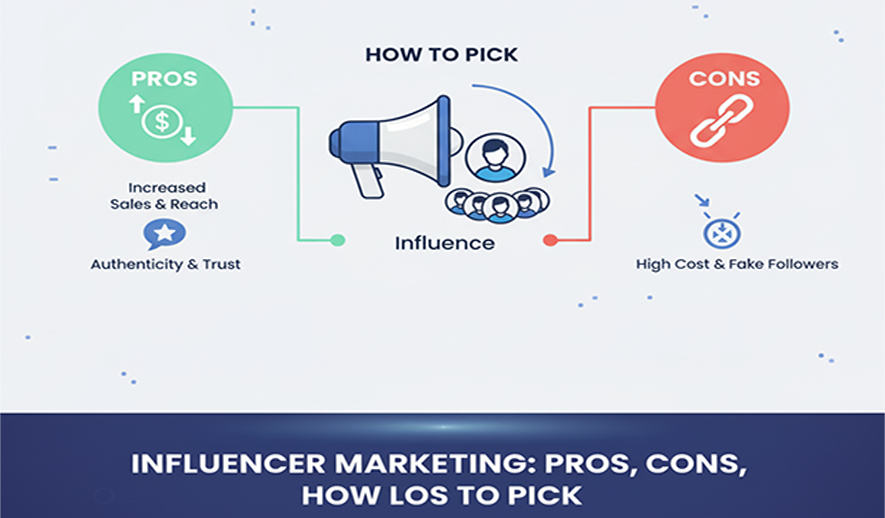
Influencer Marketing: Pros, Cons, How to Pick Influencers
Influencer marketing leverages trusted content creators to promote your brand,. It's a powerful way to build trust with your target audience, but it also comes with notable risks.
Pros of influencer marketing
- Increased brand awareness and reach: Influencers introduce your brand to their established and engaged followers, effectively expanding your audience.
- Enhanced trust and credibility: An influencer's endorsement acts as social proof and carries more weight than a traditional ad. Consumers trust influencers they follow, and this trust transfers to your brand.
- Efficient audience targeting: Influencers often have a dedicated following within a specific niche. This allows you to connect directly with a demographic that is already interested in your product or industry.
- High-quality content creation: Collaborating with creators gives you access to professionally produced, engaging content that you can repurpose across your other marketing channels.
- Cost-effectiveness: While mega-influencers are expensive, working with micro- and nano-influencers often offers a high return on investment (ROI) for a smaller budget.
Cons of influencer marketing
- Brand reputation risk: Your brand is tied to the influencer's public image. If they become embroiled in a scandal or controversy, it can negatively impact your brand by association.
- Authenticity concerns: If an influencer's promotion feels inauthentic or forced, it can damage trust. Audiences, especially Gen Z, are savvy and can spot collaborations that aren't a genuine fit.
- Fake followers and engagement: Some influencers inflate their metrics with fake followers or bots. This can lead to misleading campaign results and a wasted budget.
- Lack of control: Brands give up some creative control to the influencer to ensure authenticity. A heavy-handed approach with a strict script can backfire, while too much freedom risks a brand messaging mismatch.
- Difficulty measuring ROI: Accurately attributing sales and conversions to an influencer can be complex without dedicated tracking tools like unique affiliate links or discount codes.
